When is the best time to eat fruit?
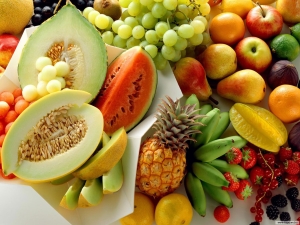
Fruits are an indispensable component of the diet of every person. They are not only tasty, but also extremely useful. However, if you do not follow the simple rules for their use, you can seriously harm your health.
Daily allowance in the diet
Fruits for humans are, first of all, a source of fiber necessary for the normal functioning of the intestines. It helps to cope with constipation and speeds up metabolism. Fruit fruits strengthen the immune system, regulate acidity, contain many essential minerals and vitamins. They reduce the content of harmful cholesterol in the blood, are involved in the prevention of cardiovascular and other diseases.
The use of fruit and berry combinations energizes, performs an antioxidant effect, improves the condition of the skin, nails and hair.

Due to the fact that fruits bring such great benefits to the body, it is recommended to include them in the menu daily. Experts have established that the daily fruit dose should be at least 400 g or 30% of the total diet.
This volume should be divided into several doses throughout the day. A single dose is usually measured with the palm of your hand. That is, how much fruit fits in your palm, so much is supposed to be eaten at a time. Everyone has a different palm capacity, but on average it is about 100 g. Thus, the number of intakes of fruit ingredients per day will be 4-5 times.
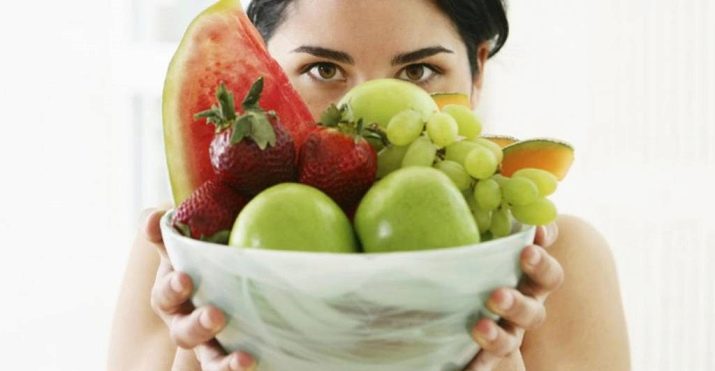
Approximately 1 reception can be measured like this:
- a handful of cherries;
- 3 art. l. raspberries;
- 1 apple;
- 1 peach.
Here are some options for including the optimal amount of fruits and berries in your daily menu:
- melon - 1 glass, grapes - 1 glass;
- strawberries - 1 glass, orange - 1 pc;
- apple - 1 piece, melon - 1 glass;
- apple - 1pc, dried cherry - ½ cup.
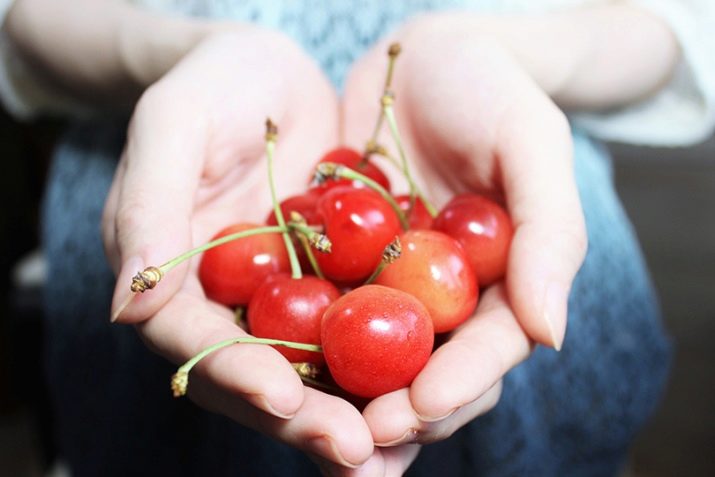
If you use valuable fruits, observing doses, you will achieve a reduction in the risk of developing the following pathologies:
- cardiovascular diseases - by 25%;
- oncological diseases - by 15%;
- premature death - by 20%.
In the course of research, scientists have found that pears, apples and citrus fruits are the best to prevent the development of heart attacks and strokes.
So, 400 g is the optimal amount of fruits and berries, which is advised to consume per day. If you are able to eat a little more volume - this is for the better. The more fruit in your diet, the healthier and more balanced your diet will be. However, it should not be abused.
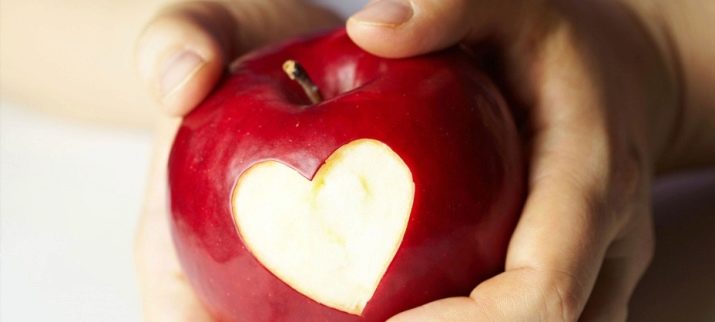
What time of day to use?
Fruits contain quite a lot of sugar. And this, as you know, is the main source of energy. Therefore, most of them are recommended to eat in the morning (until 15.00). Although there are some exceptions.
For morning use, citrus fruits and kiwi are good. They energize, which is so necessary when waking up, invigorate and improve mood. In addition, they help to remove free radicals from the body.
Kiwi is quite easily absorbed by the body and does not irritate the stomach. You can start your morning with oatmeal or kiwi curd, or eat the fruit on its own. Against all odds, this fruit is allowed to be consumed after meals.It does not cause heaviness in the stomach, but, on the contrary, gives a feeling of lightness. From oranges in the morning it is better to make juice. But lemons are allowed to eat throughout the day in any form.

Probably the most popular fruit is the apple. Everyone loves it and eats it with pleasure: both adults and children. But it is worth considering one feature of this fruit. It stimulates the secretion of gastric juice, so it is undesirable to eat it in the morning on an empty stomach. If you still cannot imagine your breakfast without this product, eat a baked apple or add it to porridge. At the very least, drink a glass of warm water. In the morning, give preference to sweet varieties.
Pears take a long time to digest in the stomach. Therefore, eating them in the morning and before going to bed is undesirable. It is best to eat pears between meals, but no more than 2 pieces at a time.

Bananas, grapes and melons are high in calories and take a long time to digest. Therefore, you should not use them at night and immediately after waking up. The best option would be to use them as snacks.
Watermelon is a berry that many mistakenly consider a fruit. It is suitable for consumption at least 3 hours before bedtime, as it has a powerful diuretic effect. During the specified time, you will have time to excrete all the fluid that has entered the body. Watermelon also promotes gas formation. Therefore, in order not to spoil your sleep, do not eat watermelon at night.
Plums have a laxative effect on the digestive system. Therefore, you should not absorb them at night or before going out.
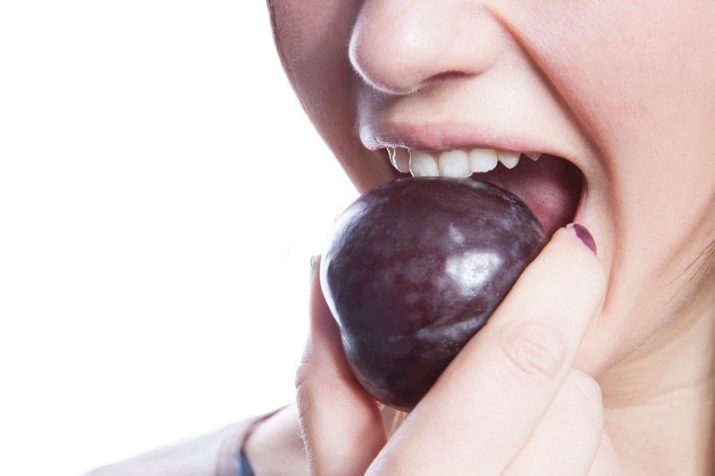
When is it better to eat fruits - before or after meals?
To get not only pleasure, but also the maximum benefit from eating fruits, it is necessary to take into account some nuances. There is a main rule: you can not eat fruit immediately after eating.Fruit and berry mixtures are mostly quickly digested in the stomach. It takes about half an hour to digest them. For comparison, fish and porridge are digested for 2 hours, it takes 3.5 hours for the assimilation of meat.
When combining the main products and fruit ingredients in the stomach, the former disrupt the evacuation of the latter. As a result, they linger in the stomach and undergo fermentation. The result is gas, heaviness in the abdomen and bloating. In addition, fruits lose precious vitamins and minerals. That's why it is better to treat yourself to a fruit dessert half an hour before a meal or 1 hour after.
The best solution is to enjoy fruit in between meals.
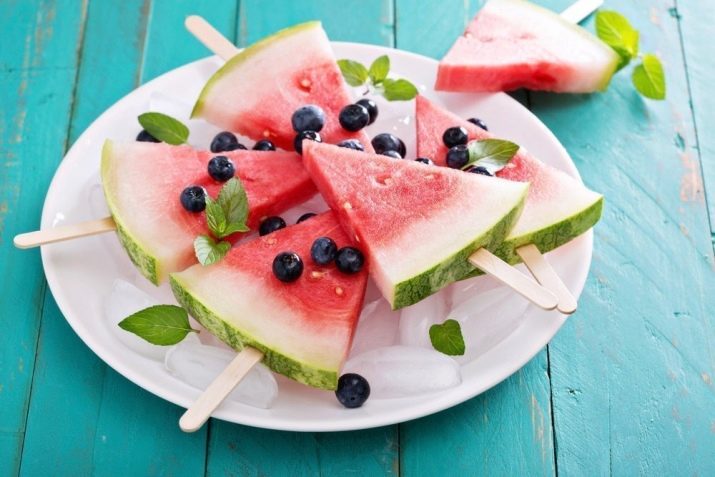
The role of fruits in weight loss
If you are struggling with extra pounds, then it is better to eat fruit before 3 pm. They are a source of carbohydrates, which, if not converted into energy, are stored as fat. Carbohydrates are transformed into energy during physical activity, which is maximum at the beginning of the day.
After a power load, having spent a lot of calories, you can safely eat vitamin fruits. You can enjoy them as early as 20 minutes after exercising, while a full meal is shown only after 1 hour.

At the same time, it should be borne in mind that losing weight must definitely control the number of calories entering the body during the day. Many fruits have a high glycemic index. Because of this, such types are completely contraindicated for those who seek to lose weight. Consider the calorie content of some fruits.
- Apple provokes appetite due to the large amount of acids. In the fight against extra pounds, this only gets in the way. Therefore, it is better to choose baked apples. They will keep you feeling full for a long time.
- Orange. It contains little sugar and enough dietary fiber.
- Grapefruit. Minimum calories, maximum fiber. An excellent product for weight loss, which is allowed to be consumed even at night, after dinner.

- Banana. Contrary to stereotypes that a banana is a super-calorie fruit, it is recommended for diets. They replace 1 meal. It does not irritate the gastric mucosa, contains only 2 g of fat (1 pc).
- Apricot. Low-calorie product containing a lot of fiber.
- Sweet cherry. There are only 50 kcal per 100 g of fruit.
- A pineapple. It is a source of enzymes involved in lipid metabolism. Thanks to them, fats are absorbed more slowly and are not deposited in problem areas.
These 7 fruits are strongly recommended by nutritionists to be included in the diet menu to fill it with useful substances.
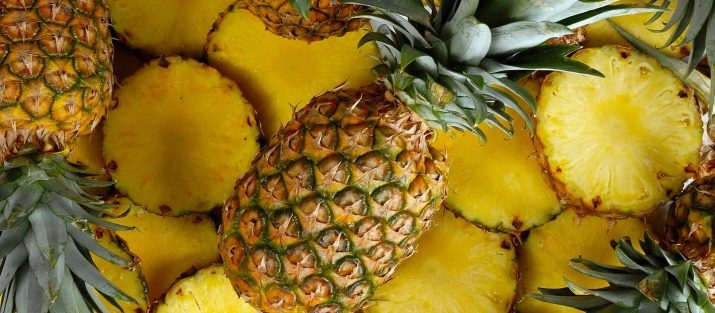
The prohibited list includes:
- grape;
- pear;
- persimmon;
- papaya;
- cherries;
- peaches;
- figs;
- dates.
They are forbidden for those who are on the strictest diet. For the rest, their use is allowed in limited quantities.
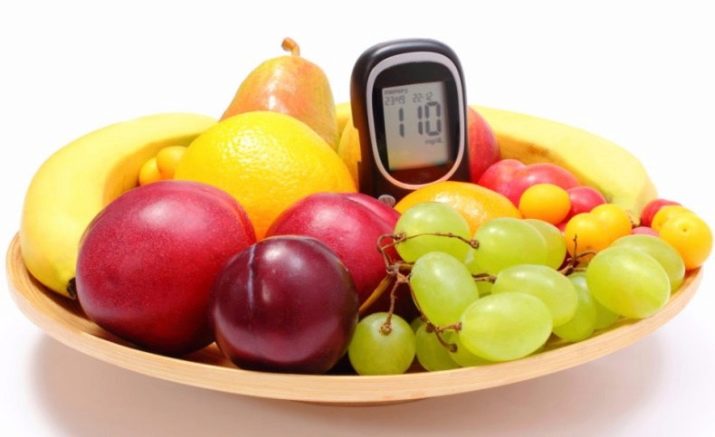
What to combine fruits with?
Experts advise eating fruits separately, not even combining their different types. For example, during 1 snack you eat grapes, during another - only a pear. Nevertheless, there are many dishes that involve a combination of various ingredients, including fruit. Cooks combine fruit fruits with other products, depending on the category of the former.
So, sour fruits, which include mandarin, pomegranate, kiwi, go well with kefir and cream. They are recommended to be served with such varieties of cheese as brynza or feta. Their union with walnuts and chicken is considered the most harmonious.
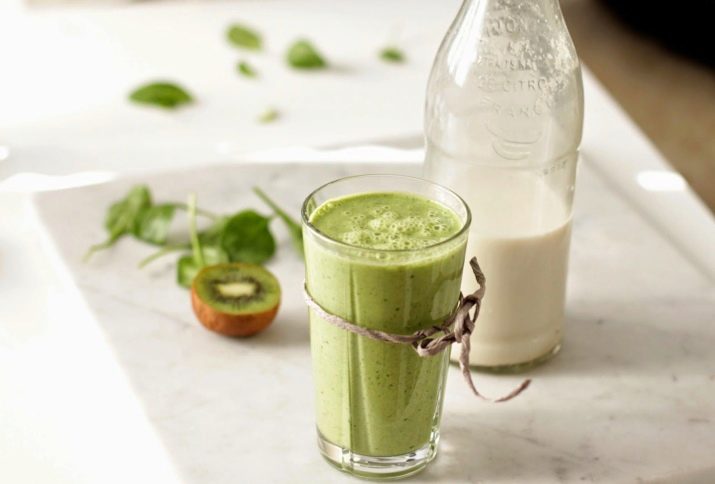
Sweet fruits (bananas, some varieties of apples, dates, pineapple, persimmons) are ideal in combination with fermented milk ingredients. Eat them with kefir, yogurt, cottage cheese.
Fruits do not combine with sausages, beef and pork, fish dishes and eggs. Their joint absorption with milk is contraindicated. This can cause diarrhea and bloating. Also, do not immediately drink water after fruit snacks. This will lead to diarrhea.
Usuallyfruits are best digested raw. So they retain all the useful components in the maximum amount. It is also allowed to use them in baked, boiled and pickled form. You can not fry and stew them.
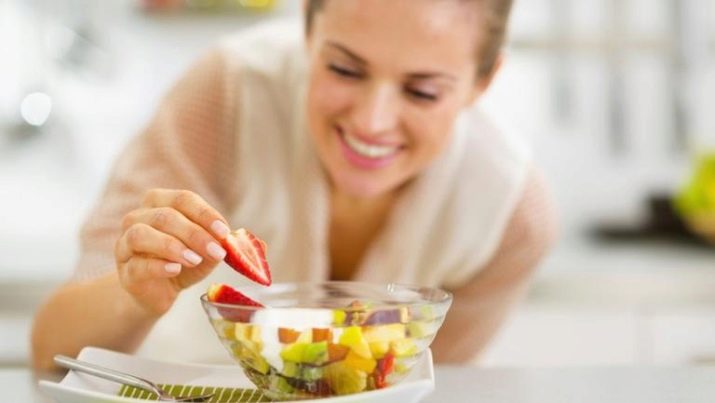
If you are a fan of tropical fruits, then keep in mind that their transportation requires some chemical treatment. This is done to preserve their presentation. Therefore, before using such products for food, they should be thoroughly washed and peeled.
Try to choose only ripe fruits for eating. Unripe ones cause indigestion. If you like to eat fruits in a peeled form, do this just before eating. If this is done in advance, they will let the juice out or oxidize in the air.
Another way to consume fruits is through juices and smoothies. They are not recommended to drink on an empty stomach due to high acidity. The right time for them is a few hours before going to bed or during breakfast.
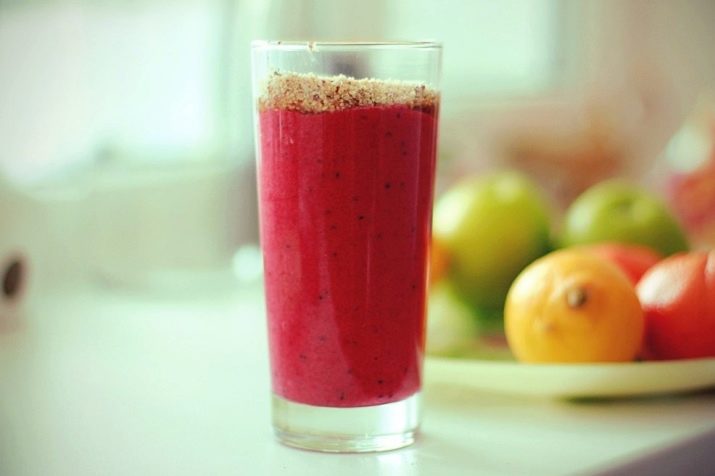
Application restrictions
It is important to note to whom fruits are contraindicated. It is also worth knowing who needs to limit their use.
If the fruits contain a large amount of acid (and these are all acidic fruits), then people suffering from gastritis with high acidity should not abuse them.Fruit juice will further irritate the stomach lining, causing it to become inflamed. If you still allow yourself such products, then eat them 30 minutes after the main dishes.
With gastritis with low acidity, such fruits are not contraindicated. But they need to be absorbed strictly 30 minutes before the main meal. They stimulate the secretion of gastric juice and normalize digestion.
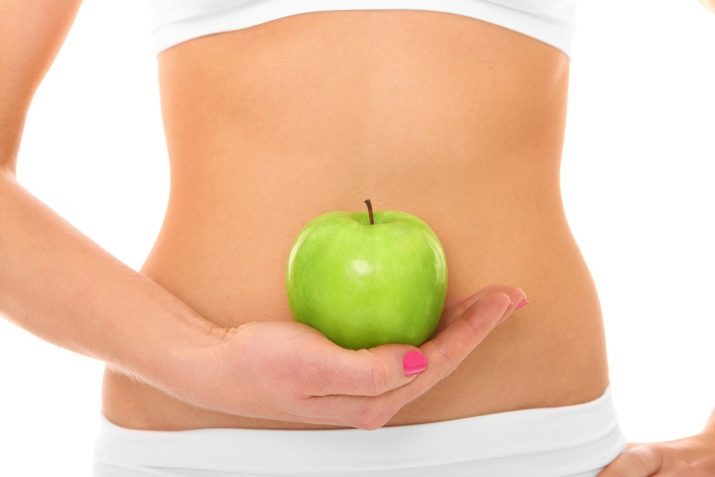
Pear activates intestinal motility and exhibits a diuretic effect. It is not advised to abuse it with diarrhea and, on the contrary, it is recommended to eat with constipation.
All fruits with a high glycemic index (which contain a lot of sugar) are carefully introduced into the diet for diabetes. These, for example, include grapes, pears, melons, plums.
So, it can be concluded that fruits are an indispensable part of a balanced diet. Introducing them into the diet in sufficient quantities, you will increase your level of health, get a beautiful figure. However, you will achieve such an effect only if they are used correctly. Otherwise, the fruits will bring only uncomfortable sensations.
You will learn about what fruits you can eat with diabetes in the following video.

















